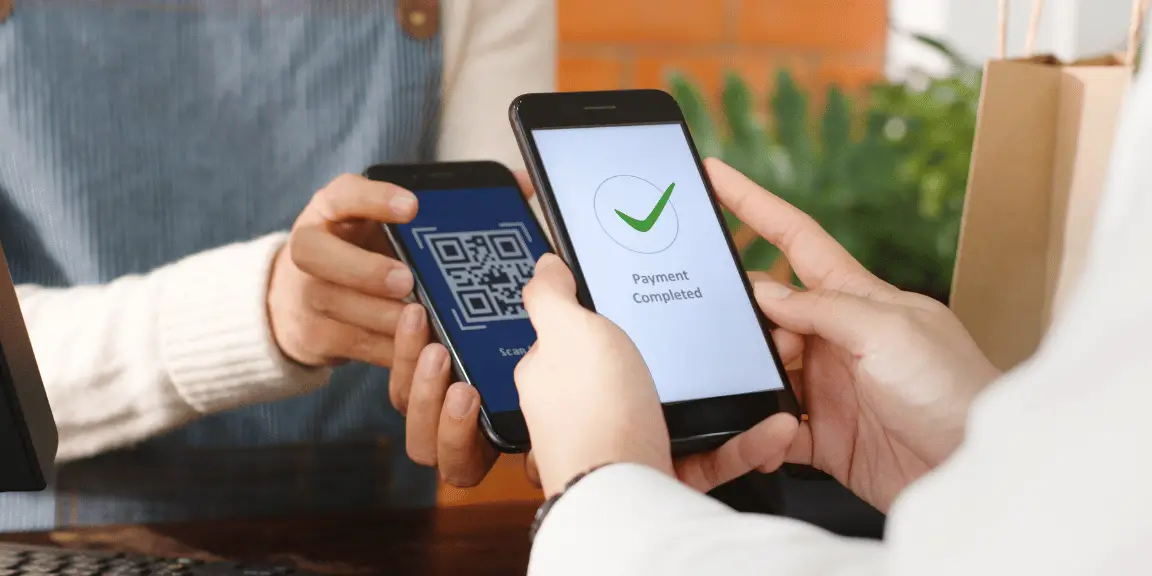Back in 1984, Westpac was the first of the big four banks in Australia to introduce an EFTPOS system, which they did at several BP petrol stations around the country. Fast forward forty years, and this payment technology is now in over 440,000 retailers in the country, thanks to products like Smartpay’s EFTPOS machines.
For many consumers, it is the preferred way to pay for their purchases. However, in recent years a number of other payment technologies have emerged, which might test their loyalty.
In this post, we’ll take a look at 5 advancements in payment technologies that retailers should know about. It doesn’t matter if you run a major supermarket, a funky boutique clothes shop or just a plain old small business, these innovations may well be relevant to your business.
1. Advances in Security for Contactless Payments
The days of buying things with cash could well be numbered. According to a report by the RBA, around 95% of Aussies prefer to pay for their in-person purchases via contactless payments.
While most people recognise the benefits of contactless payments – namely convenience, speed and efficiency – which results in less waiting times at the checkout, they might not be aware of how much the security aspects of it have improved.
Today, technologies like tokenization are incorporated within them to safeguard against sensitive data being compromised during the payment process. Therefore, it now adds a stronger layer of protection against fraudulent activity.
2. Increasing Use of BNPL (Buy Now Pay Later)
In recent years, the system of BNPL (Buy Now Pay Later) has become very popular among consumers.
Offered by providers like Zip and Afterpay, this technology allows consumers to pay for their purchases at a later time, typically over four equal payments scheduled 2-4 weeks apart. Therefore, if someone wanted to buy a pair of shoes for $200, they could do so over four different $50 instalments.
As this option does not involve accruing interest, it is a much more attractive proposition to credit cards. Not only does it reduce the risk of customers falling into debt, but it can also enable them to get a better handle on their cash flow.
Retailers can enjoy benefits from BNPL as they can provide their customers with more flexible payment methods, which should result in increased sales. Crucially, they should also get paid immediately from the service providers.
3. PaaP (Payment as a Platform)

PaaP, or Payment as a Platform, is an innovative approach that has transformed payment services into versatile platforms.
It enables third parties to offer their products or services seamlessly through payment apps, therefore providing their customers with a much more user-friendly experience.
PaaP also allows retailers to cash in on the mobile money market in emerging economies, where mobile transactions are rapidly growing. It facilitates the smooth integration of services like e-commerce, loyalty programs and fulfilment into the payment platforms.
The ultimate benefit of PaaP is that it enhances customer experience by streamlining routine transactions through increased efficiency, improved functionality and incredible convenience for retailers and customers.
4. Emergence of AI in enhancing payment methods
Over the last 12 months, the concept of Artificial Intelligence has gained widespread recognition thanks to technologies like ChatGPT. However, it has also been instrumental in driving payment innovation across various industries, including retail.
Systems that are AI-powered can process and analyse massive volumes of data. Subsequently, they have been able to refine how transactions are processed, managed and personalised.
They have even been able to make them more secure as they can predict and prevent targeted cyberattacks on any given payment ecosystem. Hence, as a retailer or a customer, you are much better protected now than ever before.
5. Cryptocurrencies
It might surprise you to learn that cryptocurrency such as Bitcoin and Ethereum are becoming genuine methods of payment in the retail industry.
Indeed, companies like KFC, Subway, Pizza Hut, Whole Foods and Starbucks currently do, or have, accepted them as a payment option in various parts of the world. Additionally, several smaller retailers such as Curryupnow.com in San Francisco, The Pink Cow, a cafe in Japan and the Old Fitzroy, a pub in Sydney, also recognise them as legal tender.
While this might not be a predominant payment method for years to come, there is a distinct possibility that an increasing number of retailers will embrace this method of payment in the future.

